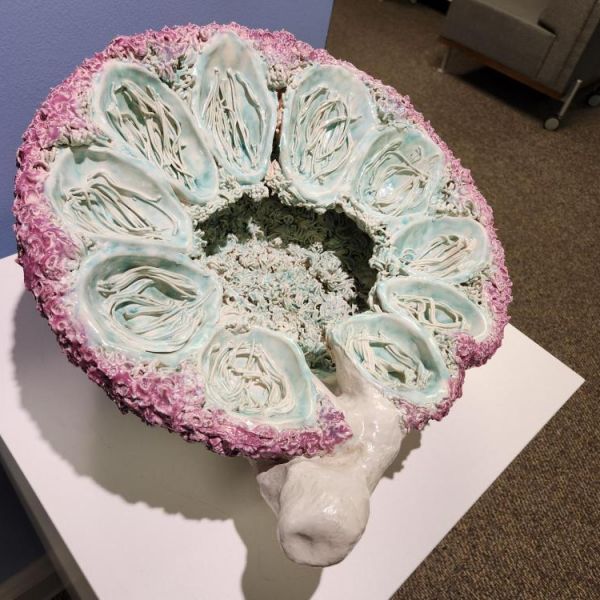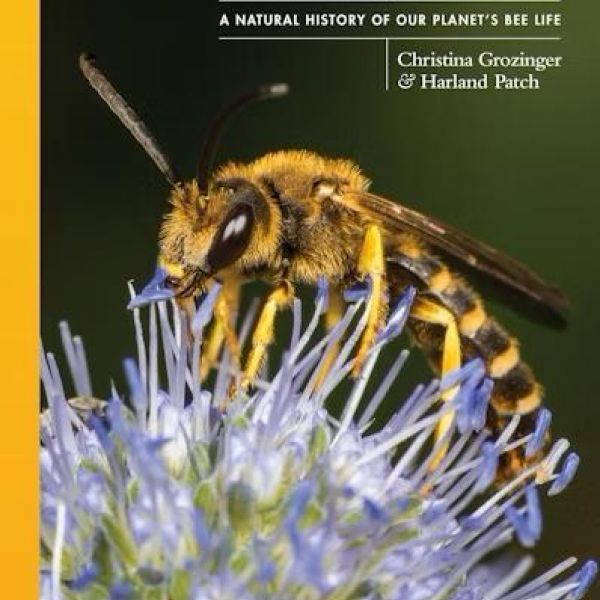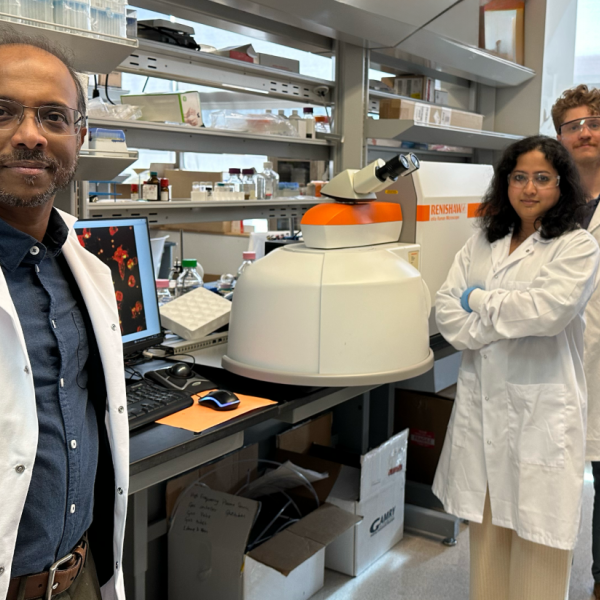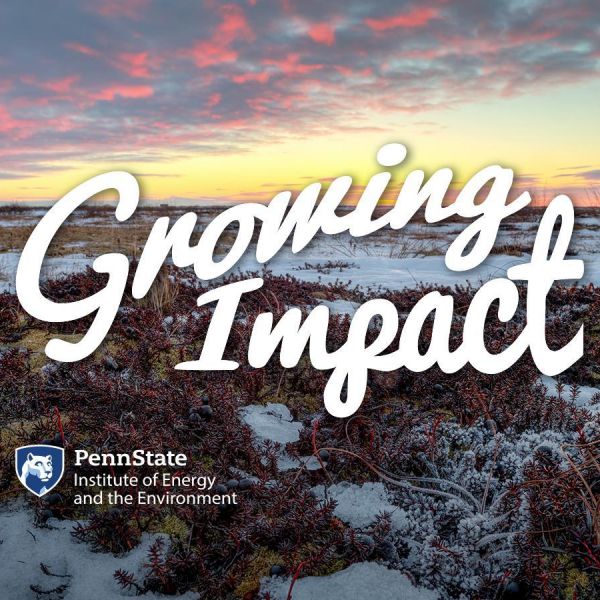News

May 15, 2024
Three Penn State staff members honored by University Staff Advisory Council
The University Staff Advisory Council (USAC) honored three outstanding Penn State staff members at a ceremony on May 10 in Old Main’s Alumni Lounge.
Full Article

May 14, 2024
'Research Art Collection' showcase in Old Main
The Office of the Senior Vice President for Research at Penn State hosted an open house for the “Research Art Collection” on April 25. The collection showcases the fine balance between art and research through various displays. From cassowary bird scans to bio-manufactured fashion to sustainable architecture, these works are featured in several different dimensional formats, including digital, print and 3D.
Full Article

May 14, 2024
Penn State pollinator experts author a new book that explores the lives of bees
Two renowned pollinator scientists in Penn State’s College of Agricultural Sciences and the Huck Institutes of the Life Sciences have co-authored a book that sheds light on one of the Earth’s most invaluable resources: bees.
Full Article

May 13, 2024
Nikki Crowley named director of Neuroscience Institute at University Park
Nikki Crowley, assistant professor of biology and of biomedical engineering and Huck Early Career Chair in Neurobiology and Neural Engineering, has been named director of the Penn State Neuroscience Institute at University Park.
Full Article

May 09, 2024
Q&A: Should you skip #NoMowMay and #PlantMayFlowers instead?
Many have heard about “No Mow May” — a movement that encourages people not to mow their lawns during the month of May to encourage the growth of flowering plants for bees and other pollinators. But is it really beneficial?
Full Article

May 07, 2024
Why is breaking down plant material for biofuels so slow?
Breaking down cellulose for biofuel is slow and inefficient but could avoid concerns around using a food source while taking advantage of abundant plant materials that might otherwise go to waste. New research led by Penn State investigators has revealed how several molecular roadblocks slow this process.
Full Article

May 06, 2024
Five faculty members honored with Evan Pugh University Professorships
Five Penn State professors—including Huck-affiliated faculty members Reka Albert, Vijaykrishnan Narayanan, and Clive Randall—have been named Evan Pugh University Professors, an elite and prestigious distinction conferred by the University on only 79 faculty members since the establishment of the designation in 1960.
Full Article

May 03, 2024
‘Better than graphene’ material development may improve implantable technology
Borophene, the atomically thin version of boron first synthesized in 2015, is more conductive, thinner, lighter, stronger and more flexible than graphene, the 2D version of carbon. Now, researchers at Penn State have made the material potentially more useful by imparting chirality — or handedness — on it, which could make for advanced sensors and implantable medical devices.
Full Article

May 03, 2024
Réka Albert named Evan Pugh University Professor
Réka Albert, distinguished professor of physics and biology at Penn State, has been named an Evan Pugh University Professor, the highest honor that Penn State bestows on a faculty member.
Full Article

May 02, 2024
'Growing Impact' podcast explores a thawing Arctic and its impacts
The latest episode of Growing Impact discusses how thawing Arctic permafrost is affecting rivers and communities in the region. With temperatures rising globally due to climate change, landscapes in the Arctic are evolving.
Full Article